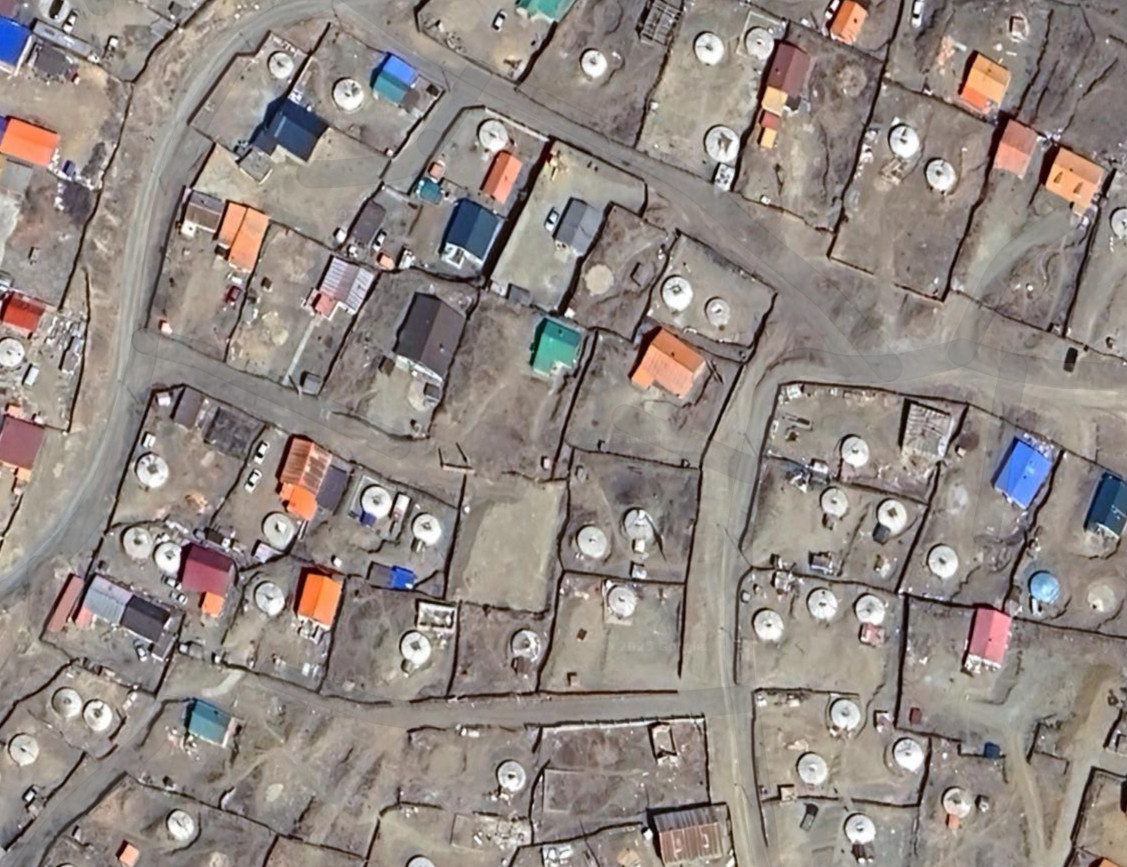I Counted All of the Yurts in Mongolia Using Machine Learning
-
This post did not contain any content.
-
This post did not contain any content.
As a technology article this is interesting
Not sure why they feel qualified to make statements like this:
"When ineffective policy results in a large chunk of the populace generationally living in yurts on the outskirts of urban areas, it’s clear that there is failure."
-
As a technology article this is interesting
Not sure why they feel qualified to make statements like this:
"When ineffective policy results in a large chunk of the populace generationally living in yurts on the outskirts of urban areas, it’s clear that there is failure."
☞

the article seems to be well written and well studied too. Why is that statement (which seems to be the common thread in any documentary about Mongolia for the last 20 years) unqualified according to you?
-
As a technology article this is interesting
Not sure why they feel qualified to make statements like this:
"When ineffective policy results in a large chunk of the populace generationally living in yurts on the outskirts of urban areas, it’s clear that there is failure."
Because the notion of not being surrounded by useless things no one needs is repulsive to westeners and the concept of people living without having any consumer goods or access to contemporary western medicine being different than suffering is impossible for us to grasp.
-
As a technology article this is interesting
Not sure why they feel qualified to make statements like this:
"When ineffective policy results in a large chunk of the populace generationally living in yurts on the outskirts of urban areas, it’s clear that there is failure."
Because everyone should live in a poorly constructed cookie cutter house and get into petty fights with their homeowners association the way God intended.
/S
-
This post did not contain any content.
You have drawn the attention of Count von Count (of Sesame Street)
-
As a technology article this is interesting
Not sure why they feel qualified to make statements like this:
"When ineffective policy results in a large chunk of the populace generationally living in yurts on the outskirts of urban areas, it’s clear that there is failure."
What qualification does someone need for that statement?
Thanks for the thought, anyway. I hadn't come across the idea that tent cities might be a good thing, actually.
-
What qualification does someone need for that statement?
Thanks for the thought, anyway. I hadn't come across the idea that tent cities might be a good thing, actually.
Whether it's a failure or not depends on whether they're living in yurts by choice because it's their traditional way of living, or they're doing it because it's cheap and they can't afford anything else. (There are probably also some sanitation issues—I don't think most yurts have running water, so public infrastructure would have to make up the difference there.) And you do need some minimal qualifications for assessing that: talking to the people living in the yurts would be a good start.
-
Whether it's a failure or not depends on whether they're living in yurts by choice because it's their traditional way of living, or they're doing it because it's cheap and they can't afford anything else. (There are probably also some sanitation issues—I don't think most yurts have running water, so public infrastructure would have to make up the difference there.) And you do need some minimal qualifications for assessing that: talking to the people living in the yurts would be a good start.
I'd say, when there's a policy and its goals aren't reached, that's a policy failure. If people don't like the policy, that's an issue but it's a separate issue.
It doesn't seem likely that people prefer living in tents, though. But to be fair, the government may be doing the best it can. It's ranked "Flawed Democracy" by The Economist Democracy Index. That's really good, I'd say, considering the circumstances. They are placed slightly ahead of Argentina and Hungary.
OP has this to say:
Due to the large number of people moving to urban locations, it has been difficult for the government to build the infrastructure needed for them. The informal settlements that grew from this difficulty are now known as ger districts. There have been many efforts to formalize and develop these areas. The Law on Allocation of Land to Mongolian Citizens for Ownership, passed in 2002, allowed for existing ger district residents to formalize the land they settled, and allowed for others to receive land from the government into the future.
Along with the privatization of land, the Mongolian government has been pushing for the development of ger districts into areas with housing blocks connected to utilities. The plan for this was published in 2014 as Ulaanbaatar 2020 Master Plan and Development Approaches for 2030. Although progress has been slow (Choi and Enkhbat 7), they have been making progress in building housing blocks in ger distrcts. Residents of ger districts sell or exchange their plots to developers who then build housing blocks on them. Often this is in exchange for an apartment in the building, and often the value of the apartment is less than the land they originally had (Choi and Enkhbat 15).
Based on what I’ve read about the ger districts, they have been around since at least the 1970s, and progress on developing them has been slow. When ineffective policy results in a large chunk of the populace generationally living in yurts on the outskirts of urban areas, it’s clear that there is failure.
Choi, Mack Joong, and Urandulguun Enkhbat. “Distributional Effects of Ger Area Redevelopment in Ulaanbaatar, Mongolia.” International Journal of Urban Sciences, vol. 24, no. 1, Jan. 2020, pp. 50–68. DOI.org (Crossref), https://doi.org/10.1080/12265934.2019.1571433.
-
The company behind Candy Crush is preparing to lay off around 200 employees amid a push to replace designers, researchers, and creative staff with AI.
Technology 1
1
-
Chinese Scientists Create Cyborg Bees That Can Be Controlled Like Drones for Undercover Military Missions
Technology 1
1
-
-
-
Elon Musk’s A.I. Company Faces Lawsuit Over Gas-Burning Turbines |The company, xAI, has installed several dozen turbines in Memphis without proper permits, the group said, polluting a nearby community
Technology 1
1
-
-
-


